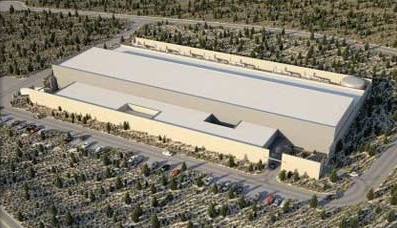

Facebook has defended the efficiency of a data centre which is the focus of a protest mounted by Greenpeace, pointing out that it uses modern cooling methods and has a world-class efficiency rating.
Facebook recently announced plans to double the size of its Prineville, Oregon data centre, even though Greenpeace has been criticising the fact that it is powered through a deal with PacificCorp, an energy company which makes two thirds of its power using coal.
Facebook is concentrating on using power effectively, rather than getting involved in how it is produced, according to a statement, and chose the Oregon site because the “temperate” climate would allow it to operate without mechanical chillers – normally one of the biggest detractors from efficiency in a data centre.
“Because of the climate around Prineville and our unique design, we won’t use any mechanical chillers. None,” said the Facebook statement. “We won’t even build any. Instead, the data centre will use an innovative evaporative cooling system.”
Prineville is the first data centre Facebook has built, and if the company had built it elsewhere, it might have been able to get cleaner electricity, but at the cost of having a lower PUE. The company could have used greener electricity, but would have had to use so much more of it to cool the data centre, the overall carbon footprint would have been higher, the company said:
“If we located the data centre most other places, we would need mechanical chillers, use more energy, and be responsible for more overall carbon in the air — even if that location was fueled by more renewable energy.”
Facebook also responded to Greenpeace’s criticism of its utility, Pacific Power, saying that Pacific “has an aggressive plan for increasing their renewable energy mix”, including plans to have more than 2,000 megawatts of renewable resources by 2013.
“Thus, our data centre is only going to get more green over time,” said Facebook.
American space agency prepares for testing of Boeing's Starliner, to ensure it has two space…
As UK and Europe develop closer military ties, European Commission says it will invest €1.3…
Zuckerberg seeks to revive Facebook's original spirit, as Meta launches Facebook Friends tab, so users…
Notable development for Meta, after appeal against 2021 WhatsApp privacy fine is backed by advisor…
First sign of shake-up under new CEO Lip-Bu Tan? Three Intel board members confirm they…
Trump's nominee for SEC Chairman, Paul Atkins, has pledged a “rational, coherent, and principled approach”…